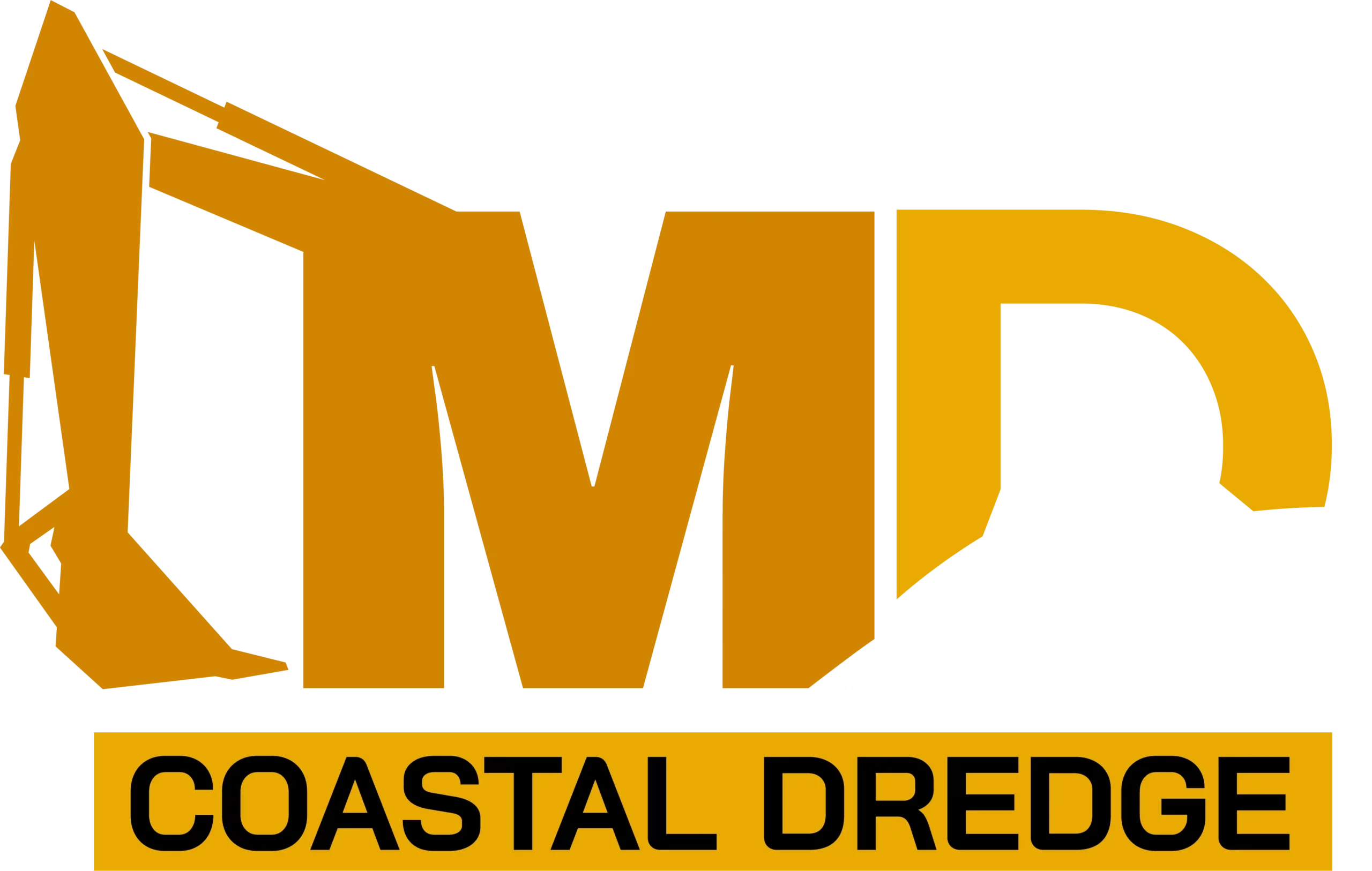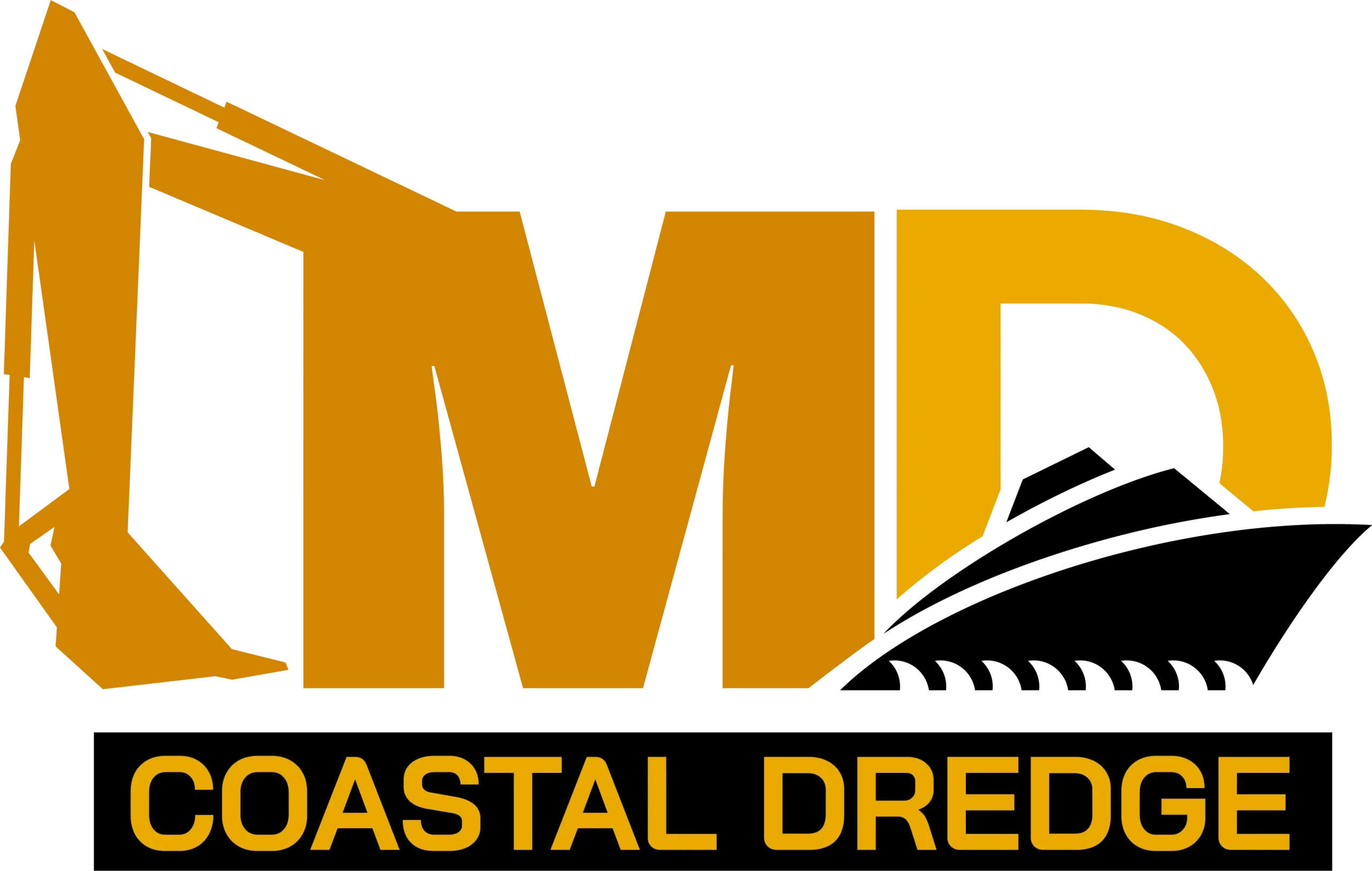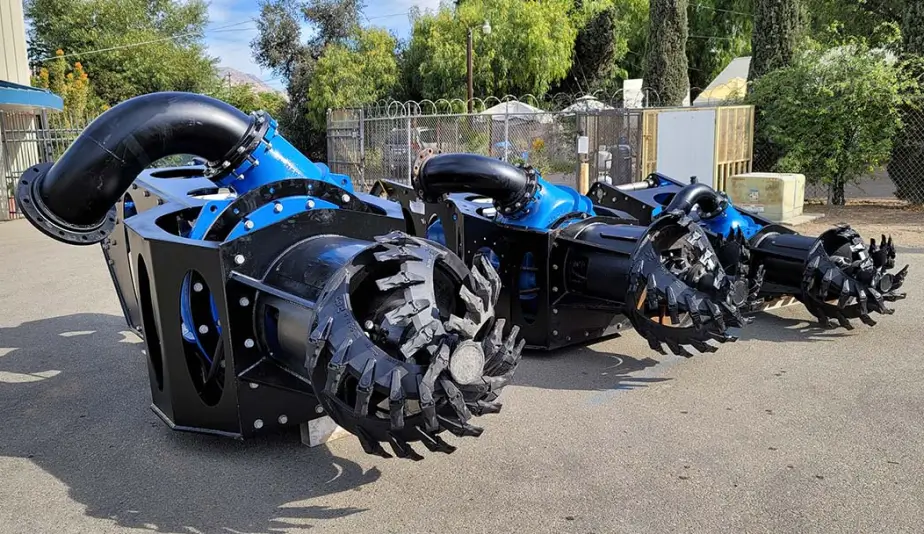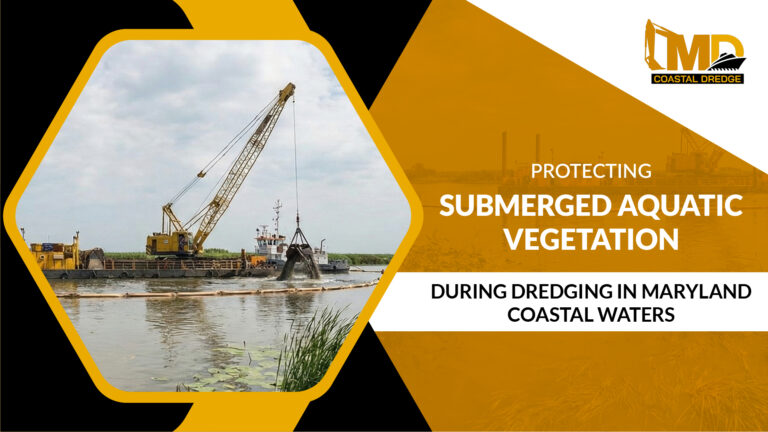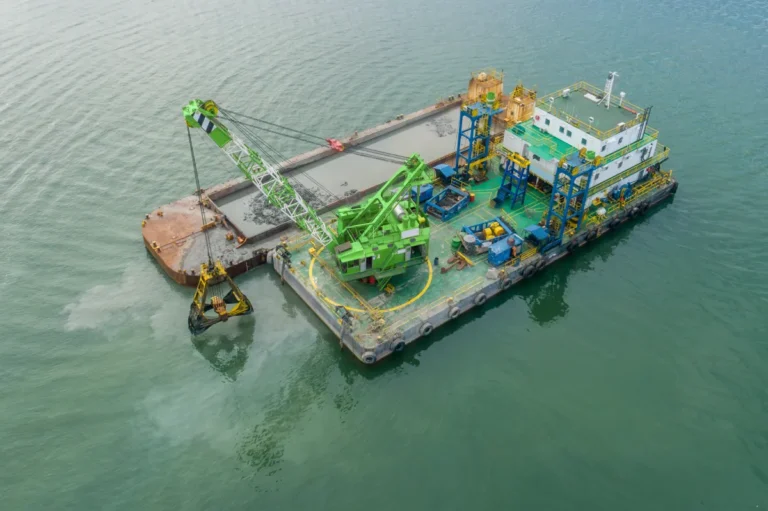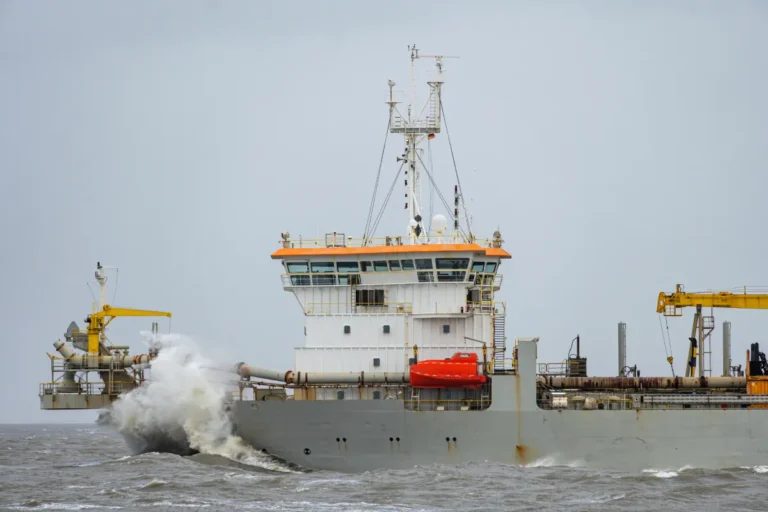Dredging projects often come with tight timelines, variable scopes, and significant cost pressures, making flexibility essential for success. Instead of investing heavily in equipment that may sit idle for most of the year, many contractors, municipalities, and landowners are opting for dredge rental as a more cost-effective alternative. Whether it’s a full dredge system for large marine works, a dredge pump rental for slurry transport, or a pond dredge rental for smaller basins and irrigation ponds, renting provides immediate access to the right equipment without the long-term financial commitment of ownership.
Ownership vs. Rental: Breaking Down the Real Costs
When evaluating dredging solutions, one of the most overlooked aspects is the true cost of ownership. Purchasing a dredge or dredge pump may appear to be a long-term investment, but the hidden expenses often outweigh the benefits for short-term or seasonal projects. Beyond the initial purchase, owners face ongoing costs such as storage facilities to house bulky equipment, regular maintenance and repairs, and the financial strain of idle machinery sitting unused between jobs. These factors make dredge rental a much more practical and cost-effective option for many contractors, municipalities, and industrial operators.
The advantages of choosing dredge rental, dredge pump rental, or pond dredge rental can be summarized as:
- Zero depreciation risks – rented equipment does not lose value over time, unlike purchased dredges that rapidly depreciate.
- No storage headaches – avoid the expense and logistics of maintaining large equipment yards or warehouses.
- Lower startup costs – immediate access to dredging equipment without the burden of heavy capital investment.
- Easier scaling for variable projects – rent larger dredge systems for big contracts or smaller pond dredges for short-term maintenance, matching the equipment exactly to the project scope.
This flexibility ensures companies can allocate budgets more efficiently, invest resources in core operations, and adapt to the changing demands of dredging projects without being tied down by long-term ownership obligations.
Exploring the Rental Spectrum: From Full Systems to Compact Units
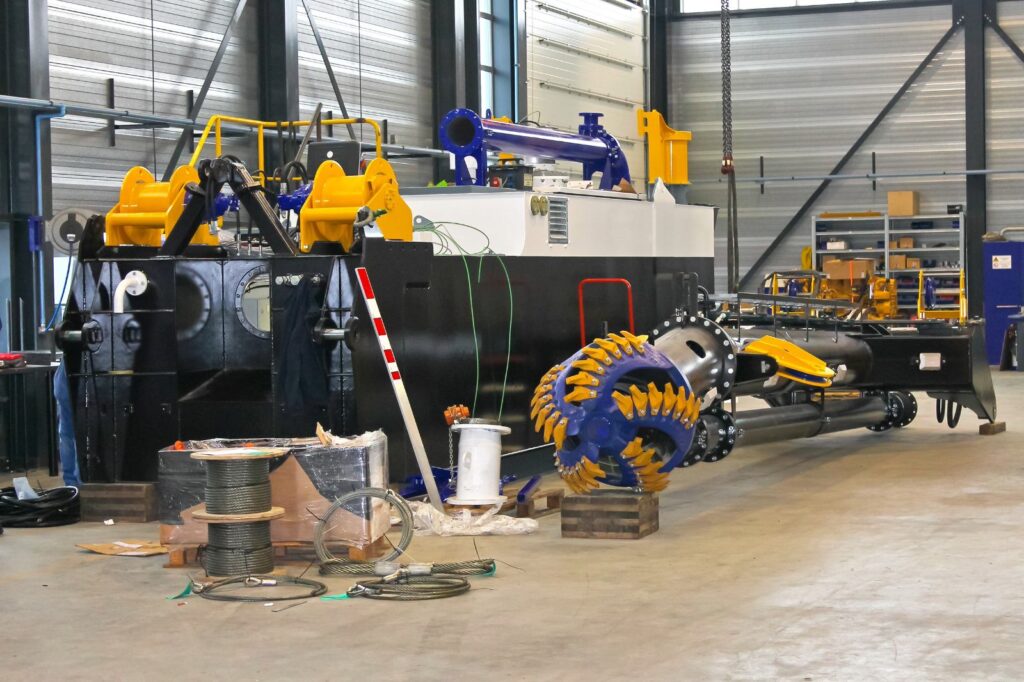
Not all dredging projects require the same scale of equipment, which is why the dredge rental market offers a wide spectrum of options. From full-sized dredges designed for harbor and reservoir maintenance to compact pond dredges used for small-scale applications, businesses can choose the exact setup that matches their project scope. This flexibility is one of the biggest advantages of opting for dredge rental, dredge pump rental, or pond dredge rental, as it allows contractors and municipalities to access specialized machinery without overspending.
| Rental Option | Best Suited For | Key Benefit |
| Complete Dredge Rental | Large reservoirs, harbors, and river restoration projects | Provides a turnkey solution, often including setup and training |
| Dredge Pump Rental | Industrial slurry transport, pipeline flushing, mining | Compact and efficient, it integrates easily with existing systems |
| Pond Dredge Rental | Golf course ponds, farm irrigation ponds, retention basins | Portable and cost-effective, ideal for small water bodies |
- Complete Dredge Rental: Best suited for large-scale, high-production dredging projects where full systems are required to handle heavy material volumes.
- Dredge Pump Rental: A smart choice when a full dredge isn’t needed, especially for operations that already have barges or platforms in place and only require a pump system.
- Pond Dredge Rental: Designed for smaller water bodies, these compact units are portable, easy to mobilize, and budget-friendly for municipalities and landowners managing ponds or canals.
This range of rental options ensures that every project—from massive marine construction to routine pond cleaning—can be matched with the right equipment size and configuration.
Counting the Dollars: What Shapes Rental Pricing
One of the most common questions when considering dredge rental is the cost. While there is no single flat rate, rental pricing depends on a variety of factors that extend beyond just the type of dredge. Understanding these drivers helps project managers and procurement teams make smarter financial decisions and ensure budgets align with project needs.
Key factors influencing dredge rental costs include:
- Rental duration – Daily, weekly, and monthly rates can vary significantly, with long-term rentals often offering better value.
- Equipment size and capacity – Larger dredges or higher horsepower dredge pumps naturally come with higher rates.
- Mobilization and demobilization – Transporting heavy dredging equipment to and from a site can add a significant cost layer.
- Accessories and attachments – Items such as discharge hoses, power units, floats, and spare parts can affect the total rental bill.
- Operator and training requirements – Some projects may require trained operators or on-site guidance, which can influence pricing.
To give a clearer picture, the table below highlights how different rental categories typically align with cost considerations:
| Rental Category | Typical Rental Period | Cost Influencers |
| Pond Dredge Rental | Weekly / Monthly | Lower mobilization costs, compact size make them budget-friendly |
| Dredge Pump Rental | Daily / Weekly | Pricing depends on horsepower, flow capacity, and required accessories |
| Complete Dredge Systems | Monthly+ | Higher costs due to transport, setup, and larger production capacity |
By carefully evaluating these variables, companies can better estimate the financial impact of dredge rental, dredge pump rental, and pond dredge rental and avoid unexpected cost overruns.
Where Rental Pays Off: Industry-Specific Use Cases
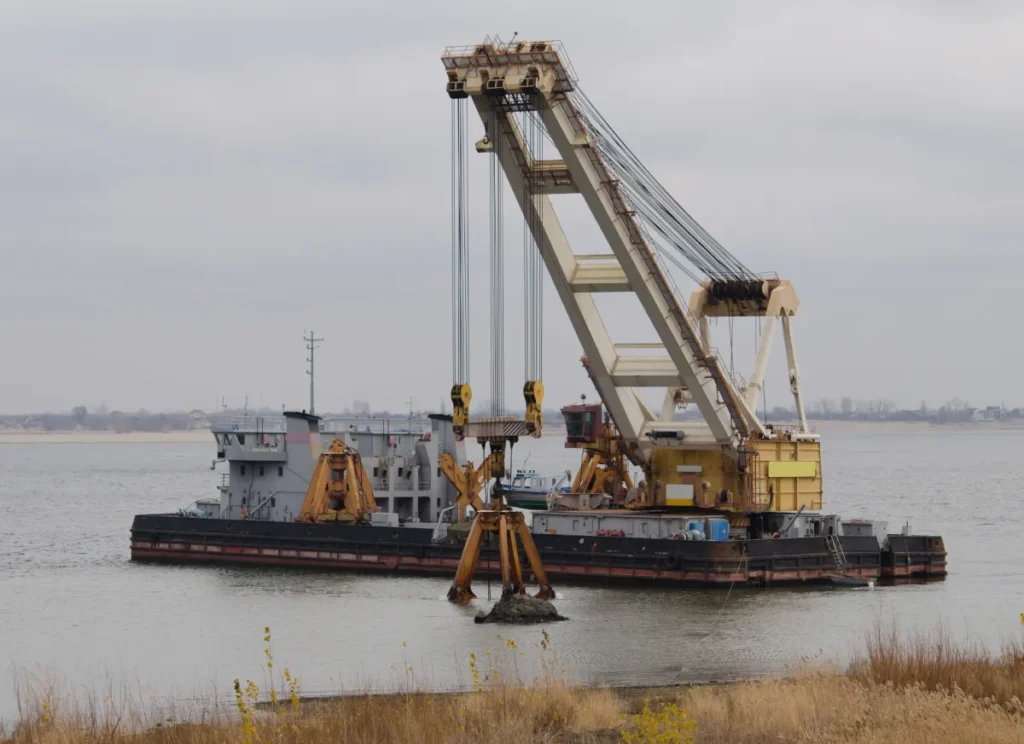
The true strength of dredge rental lies in its adaptability across multiple industries. Whether it’s large-scale harbor maintenance or small pond cleanups, renting ensures organizations get the right equipment for the job without unnecessary overhead. Both dredge pump rental and pond dredge rental offer targeted solutions that align with sector-specific challenges.
Municipal Drainage Projects
Cities and towns often face clogged stormwater ponds, retention basins, and drainage canals. Renting a pond dredge allows for quick sediment removal without the commitment of full dredge ownership costs.
Mining Operations
In mining, dredge pump rentals are commonly used for managing tailings and transporting slurry. They provide flexibility for fluctuating production needs while keeping capital expenses under control.
Agriculture and Irrigation
Farmers and agribusinesses rely on pond dredge rental to maintain irrigation ponds and canals. Renting allows them to restore water flow efficiently during critical growing seasons without tying up resources year-round.
Marine and Coastal Work
From shoreline stabilization to harbor maintenance, large-scale dredge rentals enable contractors to undertake a wide range of marine projects. Rental systems can be scaled to meet the unique demands of coastal environments.
Environmental Cleanup
Environmental contractors often use small dredge systems to remove contaminated sediments, restore wetlands, and maintain ecological balance. Rental options make it easier to secure the right-sized equipment for short-term restoration efforts.
Selecting the Right Partner: What to Look For in a Rental Provider
Choosing the right provider is just as important as choosing the right equipment. A reliable dredge rental partner ensures that projects run smoothly, downtime is minimized, and support is available when it’s needed most. Beyond equipment availability, companies should carefully consider the services, support, and expertise that accompany a rental agreement.
Checklist for evaluating a dredge rental provider:
- Diverse equipment fleet – A good provider should offer a comprehensive range of options, from full dredge systems to flexible solutions like dredge pump and pond dredge rentals.
- Maintenance and Technical Support – Access to 24/7 troubleshooting and on-site technicians reduces the risk of costly delays.
- Accessory availability – Ensure they supply discharge hoses, floats, power units, and spare parts for a complete setup.
- Environmental Compliance Expertise – Providers should understand permitting and environmentally friendly dredging practices.
- Transparent pricing and terms – Clear contracts without hidden fees enable companies to manage their budgets effectively.
Partnering with an experienced rental company also means gaining access to knowledge on how to optimize equipment for specific site conditions. This added layer of support often determines whether a short-term project finishes on schedule and within budget.
Stretching Every Dollar: Tips for Smarter Rentals
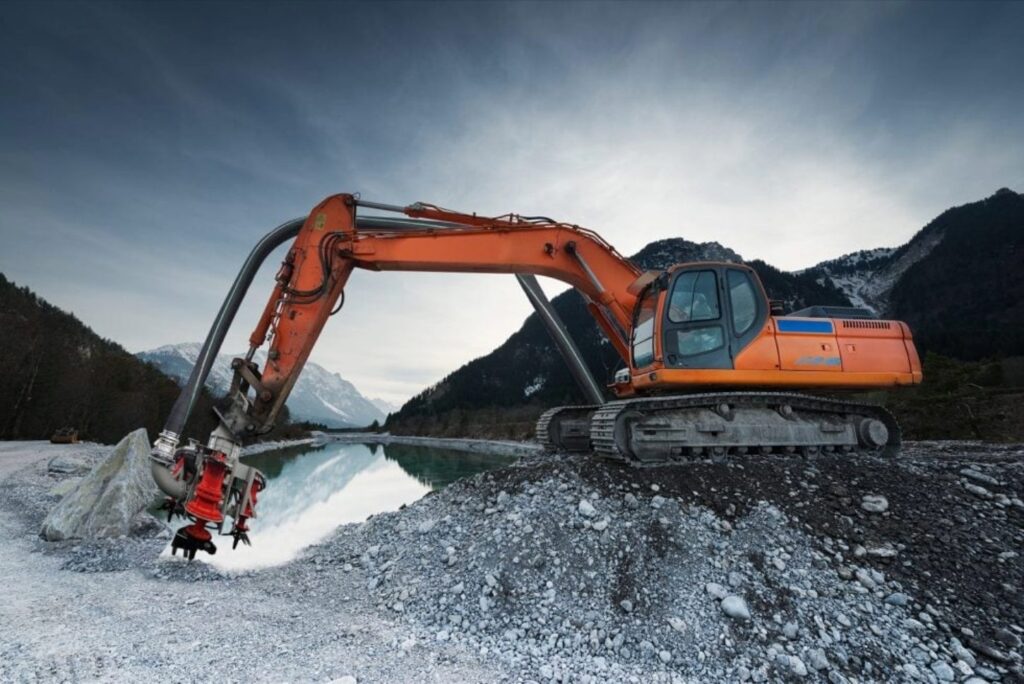
Renting dredging equipment is already a cost-effective alternative to ownership, but with careful planning, companies can maximize the return on their rental investment. Whether it’s a dredge rental, dredge pump rental, or pond dredge rental, the goal is to align the equipment precisely with project needs while avoiding unnecessary expenses.
Practical tips to get the most value from dredge rentals:
- Plan project timelines – Map out each phase of dredging work to ensure the equipment is only on-site when needed, avoiding idle rental costs.
- Match equipment size to project scope – Avoid over-renting. A pond dredge rental is sufficient for small basins, while larger systems should be reserved for high-volume projects.
- Leverage modular accessories – Renting additional hoses, floats, or power units can adapt a single dredge setup to multiple site conditions, reducing the need for separate rentals.
- Schedule mobilization precisely – Coordinate equipment delivery and crew availability to minimize downtime between setup and operation.
- Factor in seasonal demand – Securing dredge equipment in advance during peak seasons can lock in availability and better pricing.
By applying these practices, organizations can stretch every rental dollar further, ensuring that equipment costs remain aligned with overall project goals.
Wrapping Up: Why Renting Beats Buying for Short-Term Jobs
For many organizations, the decision between buying and renting comes down to flexibility and cost efficiency. Dredge rental eliminates the burden of long-term ownership costs, while options such as dredge pump rental and pond dredge rental provide targeted solutions for projects of varying scales. By renting, companies can scale up or down according to project requirements, gain access to the latest technology, and maintain budgets under control without compromising performance.
At the end of the day, renting ensures that short-term projects are completed with the right equipment, at the right time, and at the right price.If you’re ready to explore tailored rental solutions for your next dredging project, contact us at MD Coastal Dredging — we’ll help match you with the equipment and expertise you need to get the job done right.
